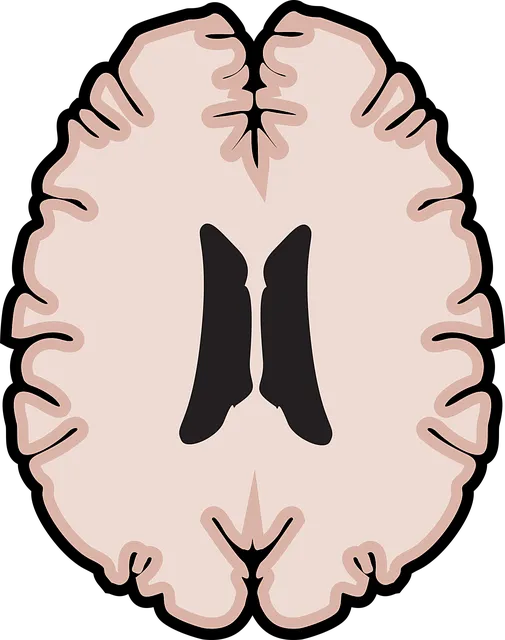Community Outreach Programs (COPs) by organizations like Kaiser target underserved areas, offering tailored mental health support through wellness coaching. These initiatives aim to raise awareness, teach conflict resolution, and foster belonging, utilizing resources efficiently. Implementing mental health services in Lakewood, as demonstrated by Kaiser, provides comprehensive care, reduces stigma, and enhances community well-being. Their COP implementation, focusing on mind over matter principles, includes youth depression prevention strategies and destigmatizes mental health discussions. Strategic design, accessibility, and inclusivity are key to success, with measurable outcomes tracking engagement, satisfaction, and long-term personal growth. Individuals seeking answers to "does Kaiser offer mental health services Lakewood?" find that these programs significantly impact the community's overall health and quality of life.
Community outreach programs play a pivotal role in addressing healthcare disparities, especially in urban areas like Lakewood. This article delves into the significance and implementation strategies of such programs, focusing on mental health services. We explore the benefits of integrating these initiatives, using Kaiser’s case as a model for successful provision of mental healthcare. Additionally, we provide practical tips for designing and executing outreach programs, followed by evaluation methods to gauge their impact, including assessing Kaiser’s role in offering mental health services in Lakewood.
- Understanding Community Outreach Programs: Definition and Goals
- Benefits of Implementing Mental Health Services in Lakewood
- Kaiser's Role in Providing Mental Healthcare: A Case Study
- Strategies for Effective Outreach Program Design and Execution
- Measuring Success: Evaluating the Impact of Community Mental Health Initiatives
Understanding Community Outreach Programs: Definition and Goals

Community Outreach Programs (COPs) are initiatives designed to connect and serve communities by addressing their unique needs. These programs aim to bridge the gap between healthcare providers and underserved populations, focusing on improving access to essential services like mental health support. For instance, organizations such as Kaiser often implement COPs to offer mental wellness coaching programs and enhance overall community well-being in areas like Lakewood.
The primary goals of these initiatives include raising mental health awareness, providing conflict resolution techniques, and fostering a sense of belonging. By tailoring their services to the specific requirements of each community, COPs ensure that resources are utilized effectively. This approach not only promotes individual healing but also contributes to the development of stronger, more resilient communities where residents support and care for one another.
Benefits of Implementing Mental Health Services in Lakewood

Implementing mental health services in Lakewood brings a multitude of benefits to the community. With programs like those offered by Kaiser, residents gain access to comprehensive care that addresses not just symptoms but also the root causes of mental health issues. This holistic approach includes emotional intelligence training and emotional well-being promotion techniques, fostering an environment where individuals can develop resilience and boost their confidence.
The presence of such services enhances overall community health and vitality. By providing early interventions and support, mental health initiatives reduce the risk of more severe conditions developing later in life. Moreover, they encourage open conversations about mental wellness, reducing stigma and promoting a culture where seeking help is seen as a sign of strength rather than weakness. This shift can lead to improved quality of life for all residents in Lakewood.
Kaiser's Role in Providing Mental Healthcare: A Case Study

Kaiser, a renowned healthcare provider, has been at the forefront of delivering mental health services in communities across Lakewood. Their commitment to Community Outreach Program Implementation is a powerful example of how Mind Over Matter Principles can be applied on a large scale. Through various initiatives, Kaiser aims to destigmatize mental health discussions and ensure accessibility to care for all.
The organization’s approach involves tailoring programs to address specific community needs. For instance, they’ve developed depression prevention strategies targeting youth, recognizing the rising concerns within this demographic. By integrating these programs into local schools and community centers, Kaiser facilitates early intervention and supports overall mental well-being in Lakewood.
Strategies for Effective Outreach Program Design and Execution

When designing and implementing a community outreach program, such as those offered by organizations like Kaiser that focus on mental health services in Lakewood, it’s crucial to adopt strategic approaches that ensure maximum impact. Effective outreach programs begin with thorough community assessment to understand local needs and cultural contexts. This involves engaging with potential beneficiaries, healthcare providers, and community leaders to identify gaps in services and specific challenges faced by the population of interest. Incorporating self-awareness exercises and opportunities for self-esteem improvement tailored to these insights can foster deeper connections and higher program participation rates.
Execution strategies should prioritize accessibility and inclusivity. Programs should be designed with diverse communities in mind, ensuring they are welcoming and cater to various cultural, linguistic, and physical needs. Utilizing multiple communication channels—from traditional media to social media platforms—can help reach a broader audience. Additionally, partnering with local businesses, schools, and faith-based organizations can act as catalysts for program awareness and participation, ultimately enhancing the effectiveness of community outreach initiatives like mental health services in Lakewood.
Measuring Success: Evaluating the Impact of Community Mental Health Initiatives

Measuring success is a vital component when implementing community outreach programs for mental health initiatives. Organizations like Kaiser can evaluate the impact and effectiveness of their services in Lakewood by employing various strategies. One key metric is tracking participant engagement and satisfaction through feedback surveys, focusing on factors such as accessibility, program relevance, and personal growth. By assessing these aspects, Kaiser can gauge how its offerings, including mental health services in Lakewood, contribute to improving residents’ emotional well-being.
Moreover, quantifying the long-term effects of these programs is essential. This involves monitoring individuals’ progress over time, especially in terms of their ability to manage stress, enhance self-esteem, and participate actively in community activities. The implementation of confidence-boosting exercises, emotional healing processes, and self-awareness sessions can be evaluated through qualitative and quantitative data, ensuring that Kaiser’s initiatives not only reach but also positively transform the mental health landscape in Lakewood.
Community outreach programs, as exemplified by Kaiser’s initiatives in Lakewood, play a pivotal role in enhancing access to mental healthcare. By understanding the needs of their community and employing strategic designs, organizations like Kaiser can significantly improve the well-being of residents. The case study highlights successful implementation, demonstrating that such programs are not just beneficial but essential for fostering healthier communities. Through continuous evaluation and adaptation, initiatives like these can ensure lasting positive impacts, addressing mental health concerns where they are most prevalent. Furthermore, exploring innovative strategies and partnerships is crucial to meeting the diverse needs of Lakewood’s population, while also considering the broader implications for mental healthcare accessibility in similar urban settings.






